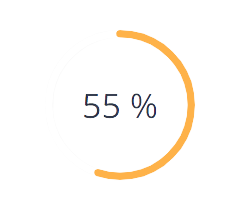
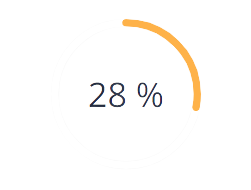
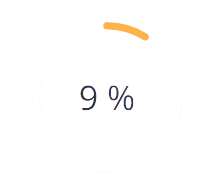
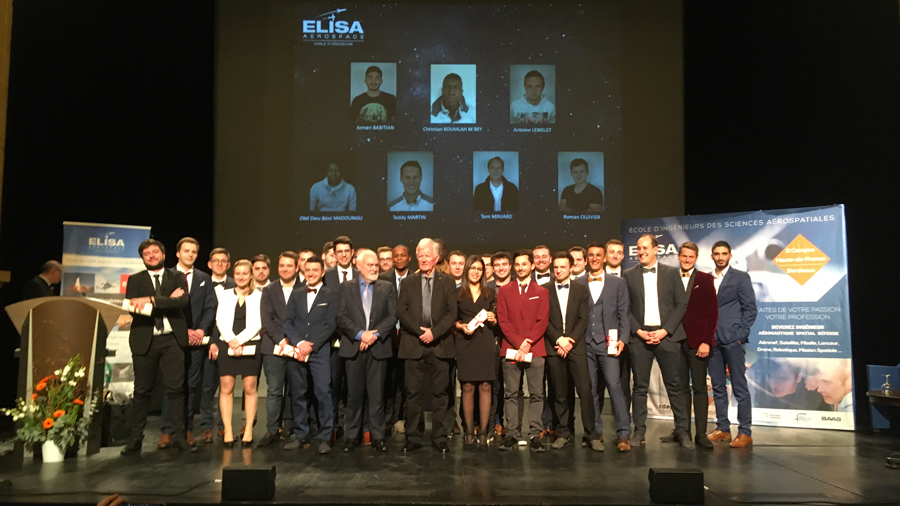
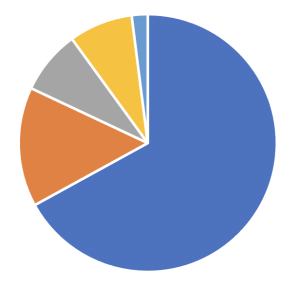

Methods Engineer
The core business of a Methods Engineer is to ensure the efficiency of industrial production processes. Whether in the high-tech industry (aeronautics, space, automotive, etc.) or the digital industry (IT equipment, technology, energy, etc.), the role of the Methods Engineer can be adapted to any industrial structure, with the aim of optimizing product manufacturing methods.
The Methods Engineer must hold an industrial engineering degree (bac+5) with a specialization in a particular field of activity. In addition to a course of study at an engineering school, the profession is also accessible via university training and a Master’s degree in industrial systems engineering.
The career of a Methods Engineer can evolve with experience, to become Technical Manager or Production Manager. He or she could also move into the quality field and become a Quality Assurance Manager.
Source :
https://www.aerocontact.com/
Continuous Improvement Engineer
The skills of the Continuous Improvement engineer are essential in any industry, from small and medium-sized businesses to large industrial groups. As their name suggests, Continuous Improvement engineers are in charge of optimizing industrial performance by carrying out improvement and innovation projects.
To work as a Continuous Improvement engineer, you need to have an engineering degree to fully understand industrial operations. A Master’s degree in quality management is also an option. Moreover, recruiters are more receptive to profiles with a specialization in Lean Management.
An experienced Continuous Improvement Engineer will earn around €50,000 a year, while a young graduate can expect to earn between €30,000 and €40,000, depending on the sector and the size of the industrial structure in which he or she works.
After a few years’ experience, a Continuous Improvement Engineer can become a logistics engineer, a quality engineer, a Lean project manager or a Continuous Improvement manager to supervise and coordinate a team.
Source :
https://www.aerocontact.com/
Production engineer
Heading one or more teams, he/she develops and organizes the manufacture of an aeronautical product in a workshop, ensuring compliance with specifications.
In charge of an aerospace or defense project, he or she is responsible for running a workshop. He manages human and technical resources to achieve maximum efficiency, while monitoring production costs, deadlines and quality.
He works in permanent contact with the design and methods office, the quality, purchasing and maintenance departments.
He may progress to a supervisory position, i.e. production unit manager.
Source :
https://www.aerocontact.com/
Operating safety engineer
Acting with a view to improving products and preventing malfunctions, the functional safety engineer studies risks and assesses aircraft functional performance.
The job is accessible with an engineering degree (Bac+5) from a general engineering school, or a Master’s degree with a specialization in Automation – Electrics – Electronics or Dependability. Beginners can also enter the profession, provided they have a first successful experience in the field of complex systems. On average, a Dependability Engineer earns a gross annual salary of 38,000 euros.
With experience and/or seniority, the Functional Safety Engineer can progress to the position of Health, Safety and Environment Manager.
Source :
https://www.aerocontact.com/
Design engineer
The aeronautical design engineer designs and optimizes aircraft components such as brakes and braking systems. Working as part of a project team, he or she is responsible for the design and/or in-service monitoring of aeronautical equipment.
Depending on their field of expertise (mechanics, hydraulics, materials, electronics, etc.), they contribute to the satisfaction of customer specifications, and are therefore committed to quality, costs and deadlines. He or she usually manages relations with customers and/or suppliers.
The design engineer needs to demonstrate creativity as well as rigor and organization. It combines the ability to develop expertise with ease in teamwork and cross-functionality. His passion for aeronautics and technology is his greatest asset.
The work takes place in design offices, in teams. Working hours are generally normal, but may vary. Design engineers may also be required to travel.
From 2100 euros (between 28 and 33 K€ per year).
A solid technical base and an aptitude for teamwork open the door to most professions (project, after-sales, industrial…).
Source :
https://www.aerocontact.com/
R&D Engineer
Working as part of a team of engineers from several disciplines, the R&D engineer designs and develops aeronautical projects. This team is managed by a Project Manager.
R&D engineers are expected to produce specifications and prototypes, and design processes to optimize product manufacturing. In addition to the engineers on his team, he works closely with the R&D manager.
They must enjoy working in a team, and have the rigor, consistency and determination to think through a project and see it through to completion.
His personal curriculum must include a course of study at a general or specialized school, validated by the award of a Bac + 5 or higher diploma. Depending on their specialization, they work in fields as diverse as electronics, optics, optronics, IT and mechanics.
He can remain an engineer but move into production, quality or methods.
If he wants to move up the hierarchy, he will apply for the position of project manager.
Source :
https://www.aerocontact.com/
The test engineer determines the procedures needed to develop or improve a product in the aeronautics industry.
It is responsible for studying the plans drawn up by the research departments to determine the tests to be carried out on an industrial product and the resulting specifications. He then analyzes the results of the experiments and writes the reports that will lead to the development or improvement of the product.
Test engineers must be able to constantly adapt to new techniques and follow rigorous methods. They must also have good interpersonal skills, as they manage a team and liaise with various departments within the company.
Test engineers work administrative hours in offices. However, they may be required to travel and work staggered hours. We work as a team.
From 2000 euros.
Engineers can progress to managerial positions: supervisor, then team leader and finally department manager.
Source :
https://www.aerocontact.com/
Based on specifications, the aeronautical design engineer carries out structural dimensioning studies, from the pre-dimensioning stage to the preparation of justification and certification files. He creates a digital representation, then simulates the performance of one or more parts of the aircraft structure using various software programs.
The engineer carries out numerical simulations using finite element software (pre-processor for meshing, solver for the numerical solution, post-processor for processing the results), analyzes RDM calculations using existing or self-developed tools (Macro VB, Matlab, etc.), and writes the synthesis or certification report.
The software is only a tool for the engineer, who must have a well-developed physical sense and master the environment in which the part evolves (accessibility, assembly, maintainability…).
Preferably after a scientific baccalaureate, attend an engineering school or university specializing in mechanical engineering, with an option in Structure or Design. Knowledge and mastery of PATRAN, NASTRAN, CATIA ELFINI, RADIOSS, Ansys, Abaqus, Ideas or Pamcrash…
From 2,400 to 2,600 euros gross per month for a beginner (depending on profile).
Engineers can move into expert positions in specialized fields (such as fatigue, crash, etc.), with career paths ranging from junior to senior, specialist to expert; or into skills-based management, with technical supervision of teams (group leader), leading to the position of Technical Manager.
Source :
https://www.aerocontact.com/
A true sales ambassador, the business engineer takes charge of the most strategic customer accounts for the company. He distinguishes himself from a salesman by his technical expertise in complex products, which enables him to deal with senior managers. It plays an essential role in guaranteeing the development of a company’s activities.
Recruiters prefer graduates from top business schools, especially those with a 5-year degree. The position is open to holders of a professional Master’s degree in Business Engineering.
At the start of their career, business engineers earn a monthly salary of 3,000 euros gross, rising to 4,500 euros depending on the size of the accounts they manage.
Experience enables a Business Engineer to take on increasingly important projects with ever-greater financial stakes for the company. You may be asked to take charge of a team before moving on to a position as Sales Director, Marketing Director or Project Director.
Source :
https://www.aerocontact.com/
The aeronautical purchasing engineer acts upstream, right from the product definition phase. It is the interface between suppliers and users in internal departments, such as production offices.
The Buyer applies the policy defined by the Purchasing Manager. He/she is responsible for one or more product ranges for which :
Organized, proactive and attentive to costs, deadlines and quality, the industrial purchasing professional enjoys taking on technological challenges in competitive environments.
He works in an aeronautical company, close to R&D and/or production engineers. He or she may be required to travel, particularly when dealing with suppliers.
With experience, purchasing engineers can progress to purchasing manager and then purchasing director.
Source :
https://www.aerocontact.com/
Manager industrial maintenance
The maintenance manager is in charge of equipment upkeep. He takes part in troubleshooting when necessary, but also in the design and organization of new installations.
The Maintenance Manager optimizes the maintenance of production resources. The maintenance manager intervenes to avoid production stoppages, and prevents and treats breakdowns.
Source :
https://www.lindustrie-recrute.fr/
Manager
production unit
The production unit manager is a one-man band and a proximity manager within the workshop. The production unit manager plans, establishes workloads and manages resources. The production unit manager supervises one or more production teams.
The production unit manager organizes the activities of one or more teams of operators and machine or production line drivers. The production unit manager monitors production, ensuring compliance with safety regulations and production requirements (quantity, lead times, quality, cost, etc.). The production unit manager also supervises the smooth running of equipment (settings, maintenance, etc.). The production unit manager may also be required to organize and monitor storage, or even handle product shipments.
Source :
https://www.lindustrie-recrute.fr/
Manager
methods
The methods manager adjusts and optimizes the overall performance of industrial organizations and companies.
The main objective of the methods manager is to optimize production by allocating the necessary resources (equipment, methods, human resources, etc.). The methods manager validates and improves manufacturing processes.
Source :
https://www.lindustrie-recrute.fr/
The supply chain manager is responsible for the production chain. Its role is to design the global supply chain strategy and ensure its implementation. In this way, it ensures the coordination and cooperation of all those involved in internal and external production chains, in order to improve the company’s competitiveness.
The role of the design office technician is to draw up plans based on customer requests, mainly in accordance with specifications. He is therefore involved in the various stages of a project and defines the elements required for its manufacture and/or installation (file, production specifications, etc.). From modeling (CAD / CAO) to the creation of parts, this technician is present in all transport sectors: automotive, aeronautics, space, rail and naval.
Industrial maintenance technicians work on production machines under constant control. His motto: prevention is better than cure. It does everything in its power to avoid breakdowns by monitoring changes in sensitive data.
What does is this job?
The main objective of the industrial maintenance technician is to avoid breakdowns and production interruptions through preventive maintenance. As the slightest technical failure can lead to high additional costs, he regularly checks, monitors and maintains equipment. If, despite everything, a breakdown does occur, you need to intervene as quickly as possible. Using tests and measurements, he establishes a diagnosis and carries out the necessary operations.
It’s up to him to change a faulty part, modify settings, correct certain data in the computer program that controls the automated machines, and get them up and running again. He is constantly looking for ways to improve the production tool, but also to reduce costs. Always on the lookout for new technological developments, we propose solutions to optimize equipment safety and performance. They work mainly on production plant and equipment, sometimes remotely (remote maintenance).
Source :
https://www.onisep.fr/













114 allée des charbonnières
33127 Saint Jean d'Illac
06 48 95 76 72
contactbdx@elisa-aerospace.fr
48 rue Raspail
02100 Saint-Quentin
03 23 68 06 11
contact@elisa-aerospace.fr